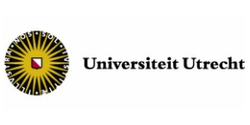PhD on Adaptive Responses to Crises: Trust in Government, Science, and Law
Updated: 19 Apr 2025
Do you want to examine how we can help humans to respond in adaptive ways to crises pertaining to important topics in society, such as radicalisation, pandemics, and climate issues? Join our team!
Your job
As part of the Gravitation project Adapt!, we are looking for a PhD candidate who will conduct both quantitative and qualitative studies on trust in social institutions such as government, science, and law.
There are several reasons why we should worry about waning trust in societal institutions that are intended to help open societies function in legitimate and effective ways, fulfilling important human needs. After all, trust in certain norms and values is needed to maintain social order and stability and keep societies as open as possible. In other words, insight into trust in social institutions is an essential asset when trying to respond successfully to various forms of crises.
As a PhD researcher, you will examine trust in and perceived integrity of social institutions. This will involve real-life contexts regarding government, science, and law. Your studies will rely on earlier successful experiences with quantitative surveys, qualitative interviews, and other methods such as field experiments. Triangulating the findings of these different research methods you will examine the implications for the actions and repertoires of professionals acting as representatives of the institutions, including judges, police officers, and scientists.
You will have the following tasks and responsibilities:
- publishing peer-reviewed journal articles and write a dissertation;
- helping with events, workshops, and conferences;
- participating in project meetings, and collaborating with the other members of the research team;
- assisting with knowledge dissemination and other activities of Adapt!;
- presenting research results at national and international workshops and conferences.
Requirements:
- A (Research) Master's degree in social psychology, law, governance, or another discipline related to the position (e.g., history or philosophy);
- a truly interdisciplinary mindset with a willingness to learn from other fields, both in terms of methodology and content;
- a proactive approach to collaborating with other work packages in the Adapt! programme, working effectively with principal investigators, PhD candidates, and postdocs on complex, interdisciplinary projects;
- expertise in crises related to radicalisation/terrorism, climate change, and/or pandemics;
- experience with a variety of research methods relevant to the Adapt! project;
- eagerness to learn and improve skills in writing academic publications and communicating research to broader audiences;
- a collaborative attitude with strong interpersonal, analytical, and organisational skills;
- preference to candidates who are fluent in both Dutch and English.
Salary Benefits:
- A position for one year, with an extension to a total of four years upon successful assessment;
- a working week of 38 hours and a gross monthly salary between €2,901 and €3,707 (salary scale P under the Collective Labour Agreement for Dutch Universities (CAO NU));
- 8% holiday bonus and 8.3% end-of-year bonus;
- a pension scheme, partially paid parental leave, and flexible employment conditions based on the Collective Labour Agreement Dutch Universities.
In addition to the terms of employment laid down in the CAO NU, Utrecht University has a number of schemes and facilities of its own for employees. This includes schemes facilitating professional development, leave schemes and schemes for sports and cultural activities, as well as discounts on software and other IT products. We also offer access to additional employee benefits through our Terms of Employment Options Model. In this way, we encourage our employees to continue to invest in their growth. For more information, please visit Working at Utrecht University.
36 - 40 hours per week
Heidelberglaan 1

